L.A. Guns' Tracii Guns names 12 guitarists who shaped his sound
The Sunset Strip stalwart recalls learning the Crazy Train solo with Slash, names the saddest piece of guitar playing he's ever heard and reveals his pick for "the most straight-up brutal rock guitarist ever"
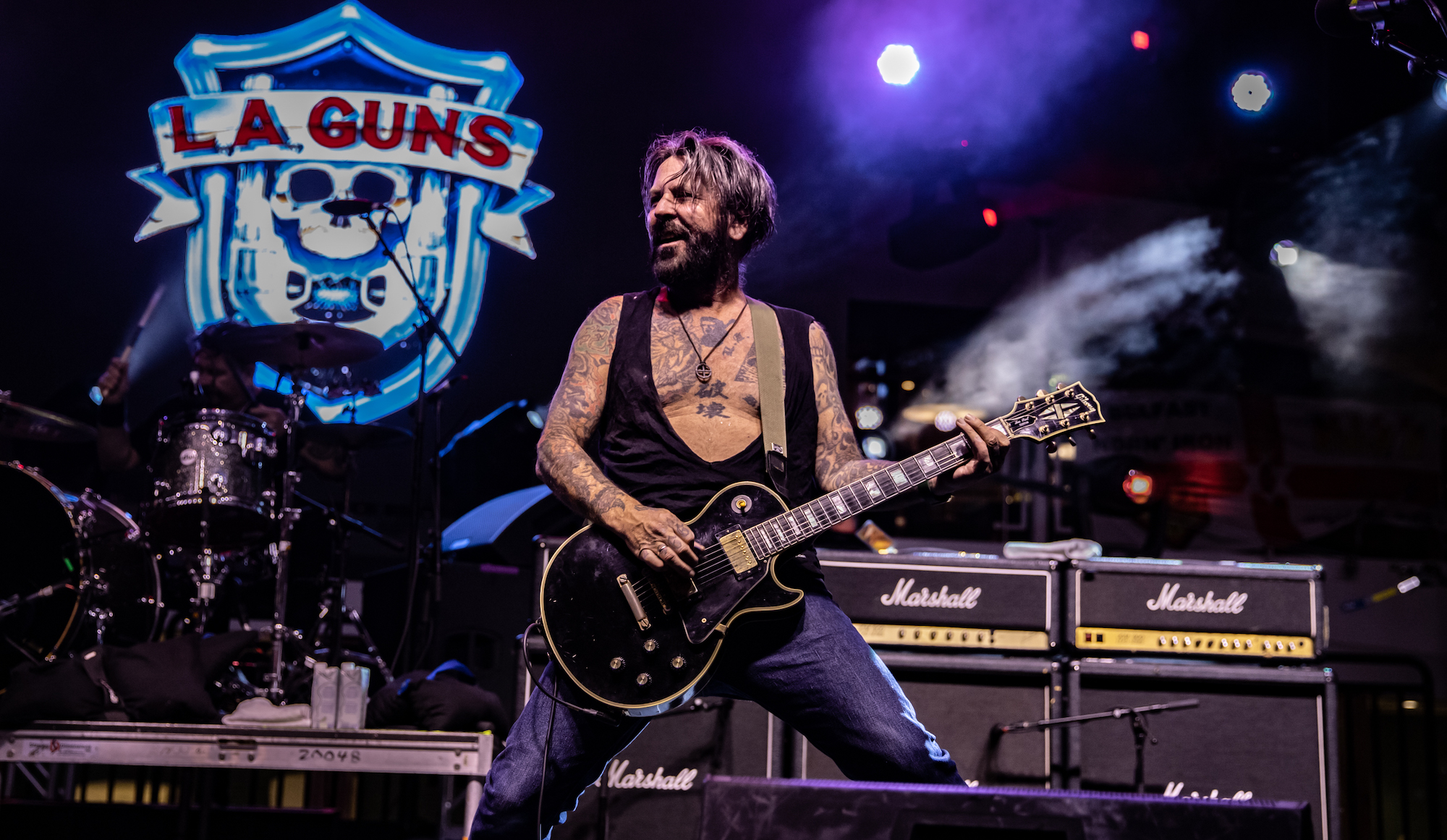
All the latest guitar news, interviews, lessons, reviews, deals and more, direct to your inbox!
You are now subscribed
Your newsletter sign-up was successful
While iconic shredders like Vinnie Moore, Steve Vai and Joe Satriani were pivotal to the evolution of guitar-centric music in the late '80s, during that same era, a smaller subset of players emerged. These were players who harbored plenty of skill and songwriting chops, but also understood the ever-important 'cool factor'.
One of those guitarists was Tracii Guns, a single-cut wielding maestro with levels of bravado fully capable of matching his meaty six-string chops. Indeed, as the lead guitarist and chief songwriter of Sunset Strip stalwarts L.A. Guns, he provided timeless solos demarcated by bouts of fuzzed-out distortion and clean-toned bursts of brazen glory.
After some time away from his namesake band, since 2016, Guns has made L.A. Guns' lead spot his musical home one more. With an endless love for vintage vibes – and guitars, amps, and pedals – and a penchant for badass guitar work, Guns is a true survivor of the hair metal era. His musical capabilities, though, stretch far beyond the typical hair metal tropes – and so, too, do his influences.
"These are the players that really did it for me," Guns says. "I'm not taking anything away from the greats like Vai or Satriani, or George Lynch, who's a sick fucking guitar player, but I think I was too old for them to have an impact on me when I was a teenager.
"I'd never take anything away from those other guys – they're fucking amazing. But when I was coming up with Slash, and we'd go to parties, we'd be playing Crazy Train and working on that solo. That was the stuff that did it for me, and as far as the players who influence me, this list is mostly where it ends."
As he prepares to support L.A. Guns' latest monster of a record, Black Diamonds – which features some of his most searing compositions and solos yet – Guns dialed in with Guitar World to run through the 10 (or 12) guitarists who shaped his sound.
1. Jimmy Page
"Page is my number one guy for a billion reasons. The first being that Jimmy was the first guy I heard that freaked me the fuck out, with Whole Lotta Love. The whole middle section, with the wah pedal and the Tone Bender cranked, is the most brilliant guitar sound I've ever heard to this day. Page is an amazing soloist, but his production ideas and his way of layering sounds – using guitars to reinforce other guitars – were legendary.
All the latest guitar news, interviews, lessons, reviews, deals and more, direct to your inbox!
"His soloing between major and minor scales within the same solo is unmatched. Or, as Jimmy would say in his classy British accent, 'Switching between the light and the shade.'
"Let me tell you – with a guitar in his hand, Page was no joke. That style of playing, when I do it, I learned all that from him. His ability to express himself in the studio and live as a guitarist is not of this earth. But maybe what's most impressive was his casual theft, which basically means he stole the right shit [laughs]. That's important at the end of the day."
2. Tony Iommi
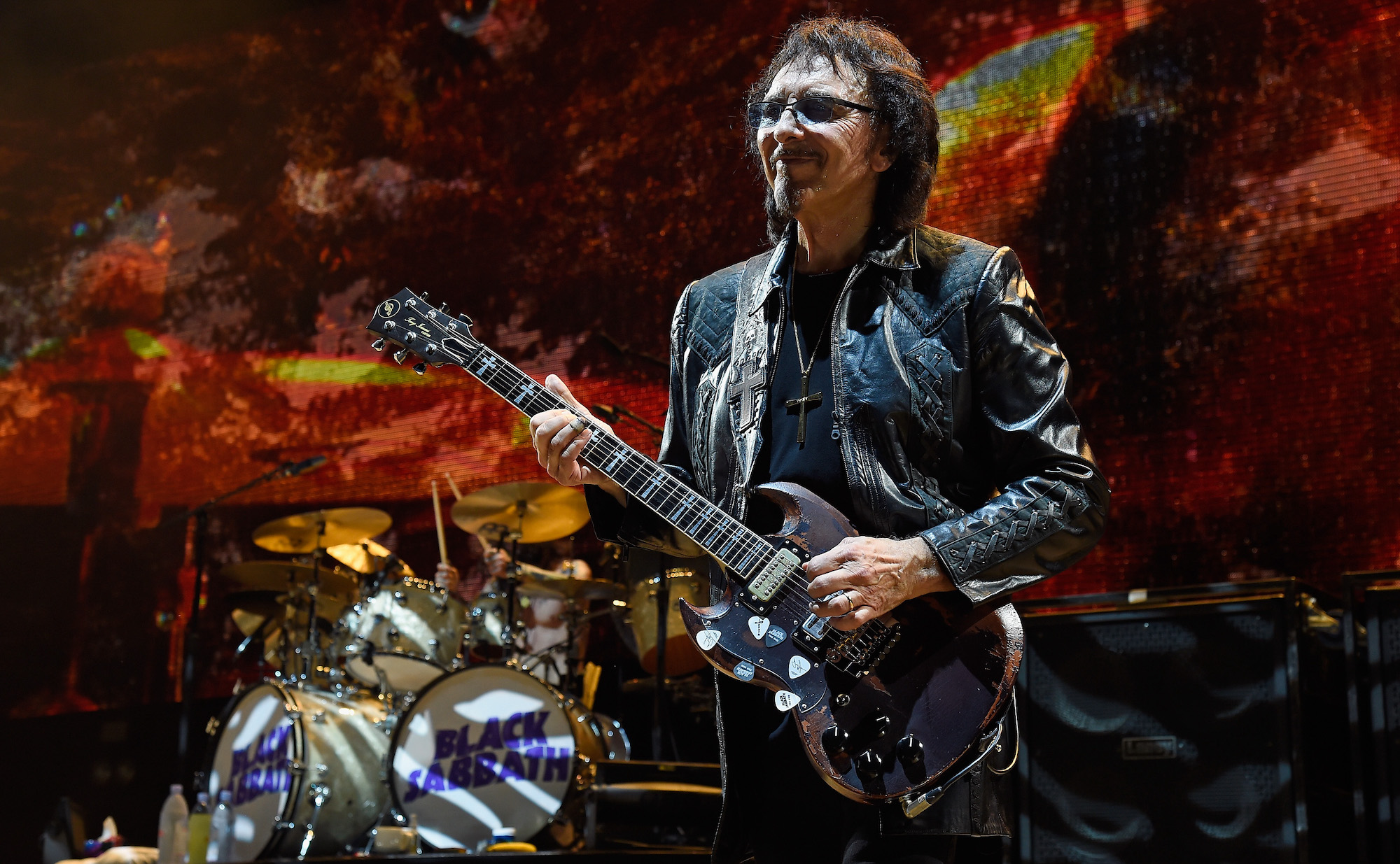
"Tony was the next guy after Page that scared the shit out of me. I think it was Iron Man with that dull, droning guitar sound that's just so rude. I first heard that when I was 10 years old and instantly fell in love with it.
"The crazy thing with Tony is that he's been able to maintain that sinister mood and never diverted from it too much. Of course, there are [also] things where he's experimented, and it's always so great-sounding. As an acoustic player, he's so different, but everything he's done is very different and utterly unique to him.
"I'll go on YouTube and watch him play a lot of those solos, and it's so interesting. Even with his deficit of fingers, he constructed those solos, and even though they can be basic, Tony proved that the melody and slowness of something really heartfelt are so much more important than anything else.
"It's almost like a classical piano piece: it doesn't have to be fast, it doesn't have to be nimble, it just has to be good. His limitations don't matter because he makes up for those limitations with his expression."
3. Jimi Hendrix
"I actually got into Eddie Van Halen before Jimi Hendrix, but there's a high likelihood that we wouldn't have had a lot of the wildness that Eddie offered later without Jimi.
"Jimi Hendrix was obviously a blues-based player, but he also had early bits of punk rock in there. As a soloist, he merged heavy rock, early metal, and, like, proto-glam. As a guitar player, Jimi did it all. He did things that were identified later as whatever, but at the time, nobody could put their finger on what they were – to put them in a box.
"As time passes, when we watch him, he was doing everything before anyone else did. Jimi's raw expression was very melodic, and he very rarely overplayed live. Sure, he would go wild, but that's much different than overplaying. He wasn't a typical shredder. Instead, he was expressive.
"I think that counts for more than just being proficient or athletic as a guitarist. He was more about melody and presenting an atmosphere within the music rather than showing off skills."
4. David Gilmour
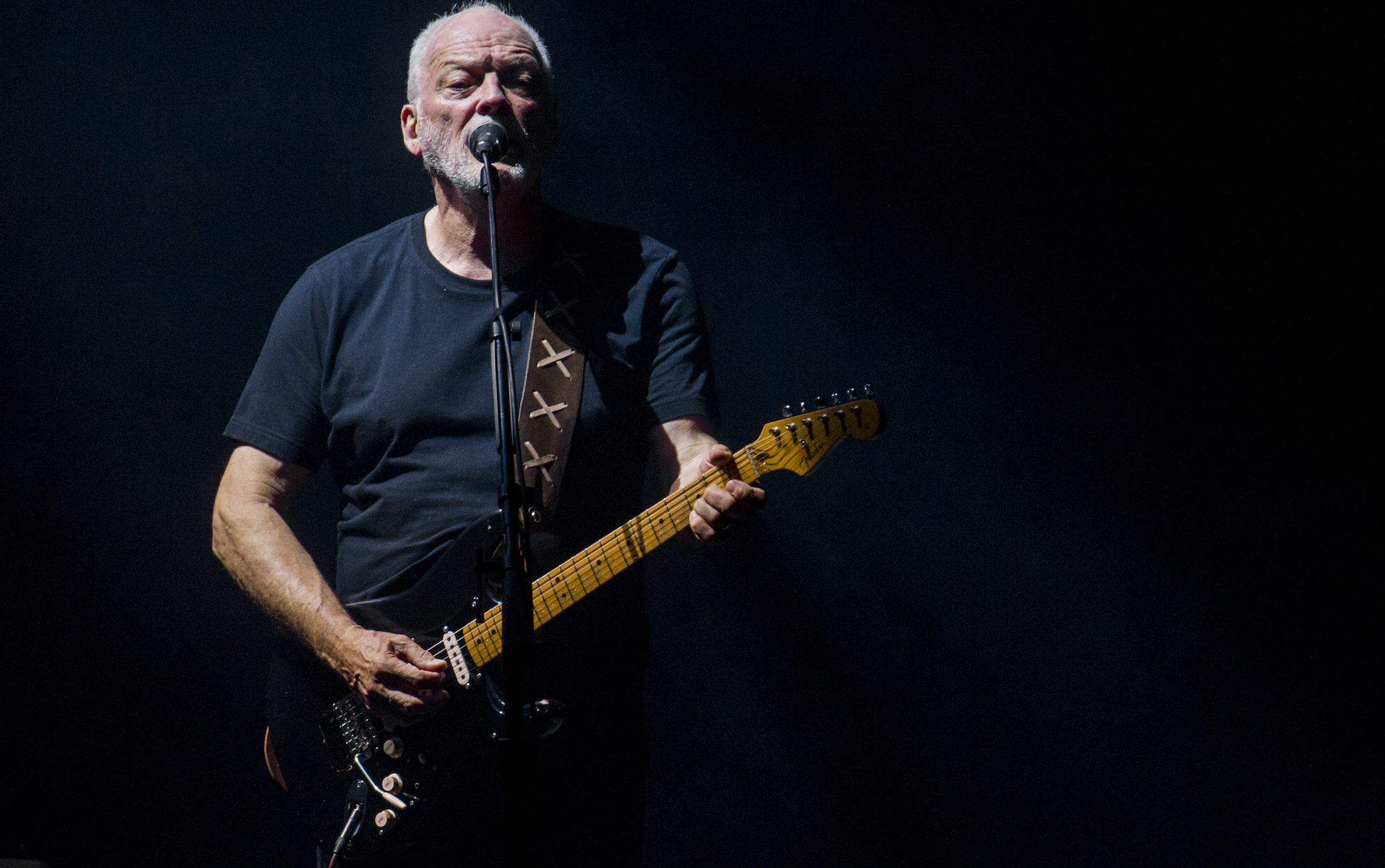
"Once again, with Gilmour, we've got a guy who made his expression known. His solos and playing have this heart and soul that completely bleeds out and gets everywhere when he gets going.
"Shit, just think about Comfortably Numb – how great of a song is that? He was awesome the whole way – suddenly, he does an outro solo that steals the whole show. There are not a lot of guys that have done that or would have the balls even to attempt that. I mean, you don't just write Comfortably Numb and then steal the spotlight because you're a solo instrumentalist, right? But he did that, which basically sums up David Gilmour's heart.
"The other thing that got me into Gilmour was the soundtrack for a movie called The Valley, and there's a slide piece on that album called Obscured by Clouds. If you listen to that song, that's how I play slide.
"I was listening to that even before I was a teenager over and over and over again, and it imprinted itself on me. So, when I approach almost any slide thing I record, it's always reminiscent of Obscured by Clouds. Gilmour's work on that scared the shit out of me. I was like, 'Wow, that is sad and evil.'"
5/6. Eddie Van Halen/Randy Rhoads
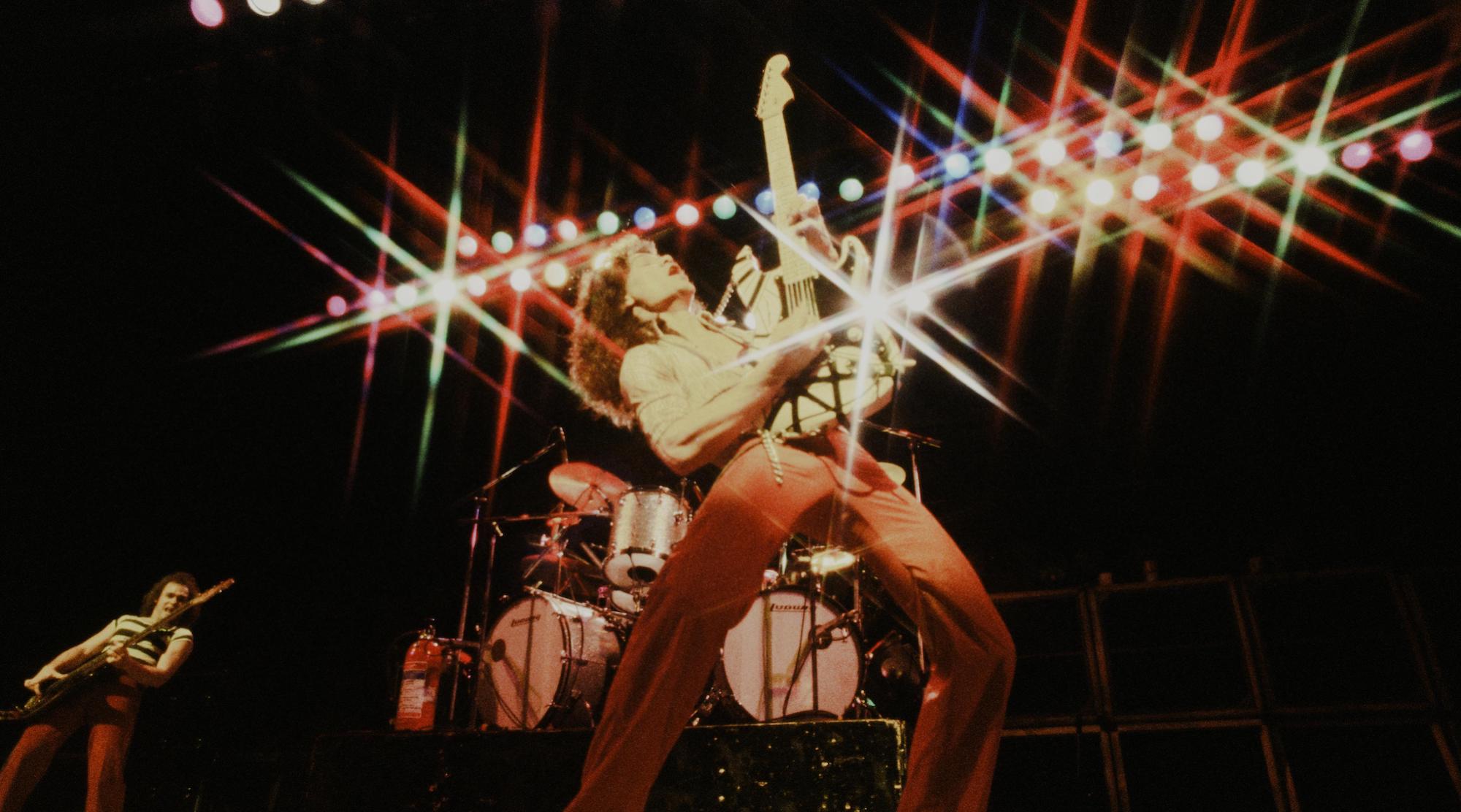
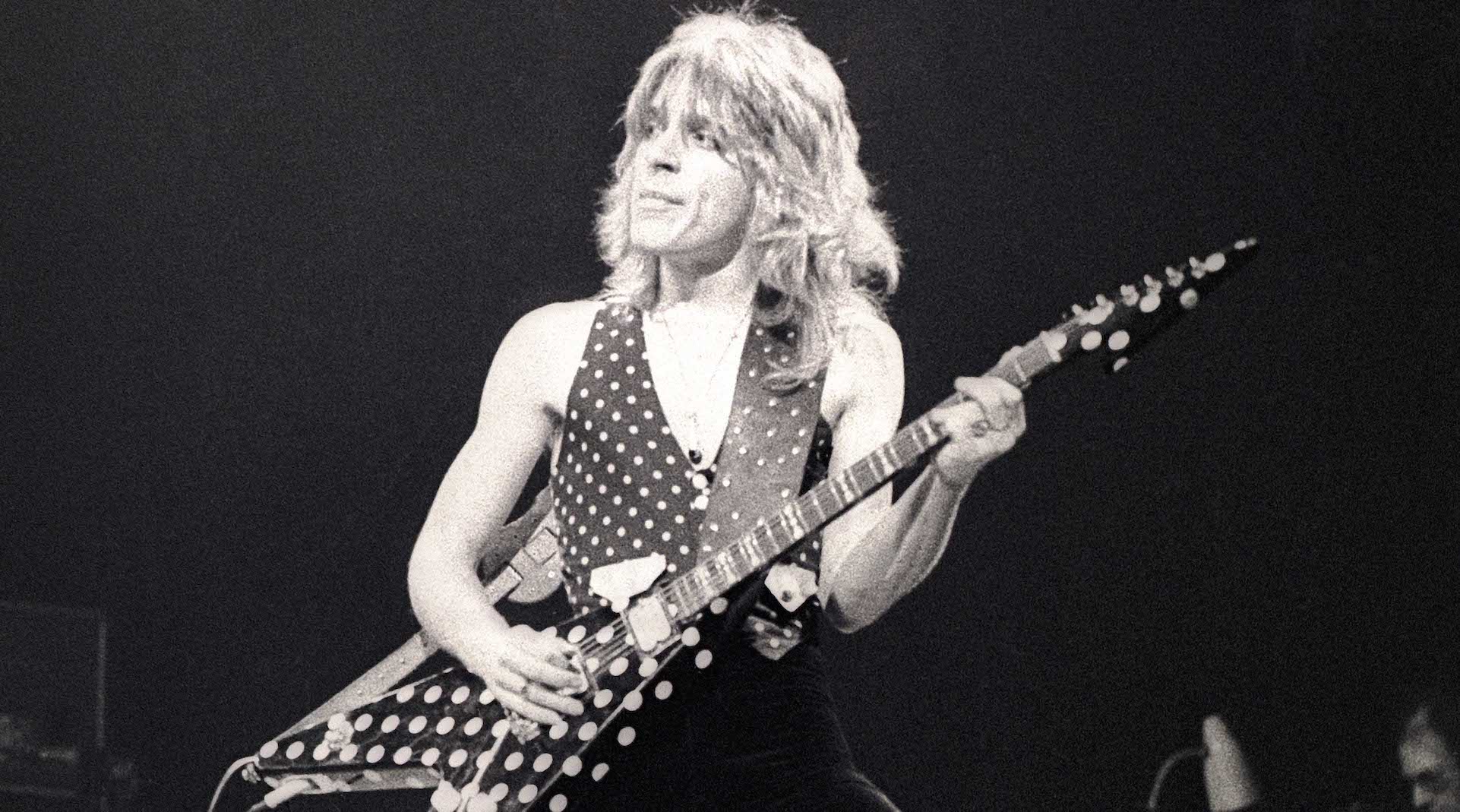
"It's a tie between Eddie and Randy because they were so essential in my development in being able to create L.A. Guns-sounding music. Eddie was who I got into first, and of course, he was more blues-based, with that bombastic sound. But he also had a ton of depth and modernism, which was totally apparent when Van Halen came out in '78. I remember coming home from summer camp – I think I was 12 years old – and Eruption came on the radio, and it blew my fucking mind.
"There was a big debate on that school bus coming from home from summer camp where we were arguing whether it was all keyboards or someone playing guitar [laughs]. We were all totally confused, and we couldn't decide. I was pretty sure it was a guitar solo, but all these other people on the bus were like, 'Oh, no, that's keyboards. It's common stuff.' So, his impact on the whole community was wild, man. It was like, 'What the fuck was that?'
"But then, we've got Randy Rhoads, who probably had a lot of the same influences that Eddie Van Halen had, but he took a darker approach. His overall arrangements [were] not so concerned with pop stuff. Randy was doing things from a major key point of view, which is very classical.
"That leads to people mistaking him for an accomplished classical player by the time he was 22 or 23, but he wasn't. Randy was just getting into studying classical, but he had that ear, and it defined the whole classical metal vibe he had.
"To this day, when I listen to the few black metal bands I'm still into, they sound like Randy Rhoads to me. He had those phrases, those perspectives, and the image and vibe that tied it together for me. His live sound was so hot, and it's always been the live sound I've gone after, but I'm more in control now. Randy Rhoads had the most brutal guitar sound I've ever heard. It's kind of like Hendrix with humbuckers.
"I can't choose between these two. Eddie was more articulate in his experimentation with his sound, amps and effects. Whereas Randy just wanted volume and feedback, he could clean it up with the volume pedal a little bit, though not very much [laughs]. So, it's a tie for me. People probably expect me to play more Rhoads, and I probably do, but Eddie was huge for me. His influence is a bit more random, but no doubt, it's there."
7. Gary Moore
"What Gary Moore did with his Victims of the Future album was insane. That was so brutal with a guitar in his hand, and he is probably one of the most aggressive players I've ever heard. I heard that, and I was like, 'Holy fucking shit. Wow.'
"Moore wasn't the most inventive guitarist, but he's the most straight-up brutal rock guitarist ever. He was a shredder, too. His articulation and the strength of his fingers were completely off the charts. He was a good songwriter and great at coming up with monster riffs.
"He didn't need to take many chances with the guitar. Instead, he just attacked the thing with this bionic style. As far as metal goes, and even with some of his blues stuff, he was in a lot of ways untouchable as a guitar player.
"I think a lot of people know him more for the blues stuff, and that stuff is impressive, but it never really grabbed me. A lot of blues stuff doesn't grab me because, as a teenager, Zeppelin was my blues. But as I get older, I've been able to come back and appreciate that side of Gary Moore, too."
8. Jeff Beck
"Jeff was one of the most unique guitarists in the world, but he did a lot of stuff that I couldn't relate to. For a long time, I was like, 'Yeah, he's experimenting. Okay, yeah, maybe somebody else digs it, but maybe not for me.' But when he finally hit the mark with me, it was like, 'Holy fucking shit. This guy is straight-up supernatural.'
"His version of A Day in the Life that he did with George Martin, man, that's the saddest guitar playing I've ever heard. His finesse with his fingers, the slide, the tremolo arm, the volume swells... all that expressiveness was truly special.
"Then, obviously, he was a great rockabilly player. A lot of people don't realize that, and he hardly ever included it on his resume, but damn, he was good at that, too. Like, how fucking good do you have to be at something where you just say, 'Yeah, I can play rockabilly. Whatever.'
"Beck's Truth album, to me, in so many ways, is the mold for Led Zeppelin. It was almost there, but the production was not that great. The hard-hitting, dirty blues ideas were there – he had a vision, and it wasn't just about being a guitar player, it was about creating something that transcends forever."
9. Michael Schenker
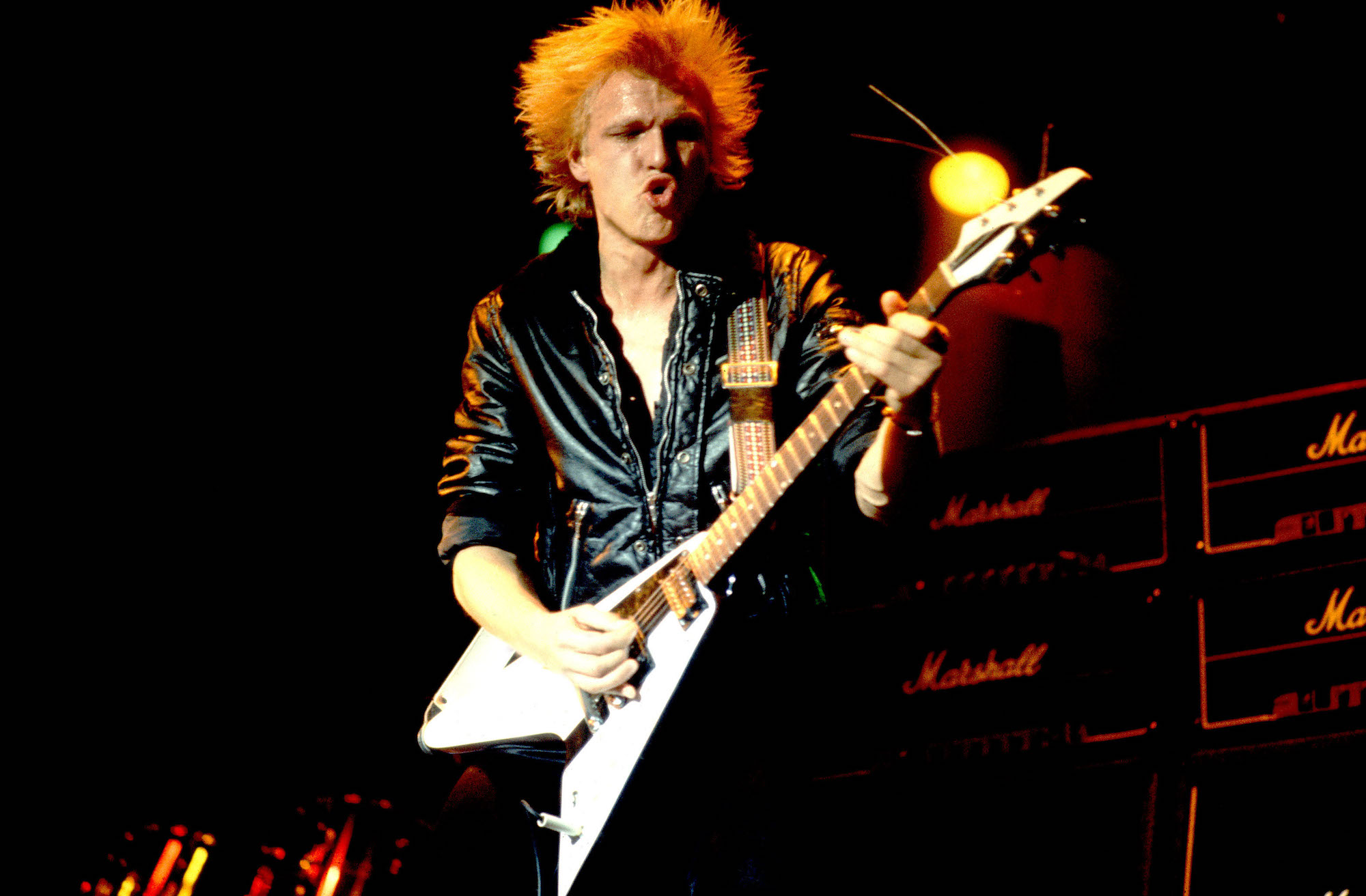
"When I think of Schenker, I still think, 'Wow.' I mean, talk about a super-soft touch in a heavy metal environment. His articulation and his melancholy phrasing are so unique to him. I know that he always claims Jimmy Page was a significant influence on him, but I don't hear Page in his playing.
"He defined German heavy metal to the point that he's, like, a legendary classical composer, only he plays guitar. But, his style's not really classical. Still, it's just so pretty [even] within that distorted realm. He paints pictures with the guitar in ways nobody ever has, and still, nobody does those sorts of things."
10/11. Keith Richards/Joe Perry
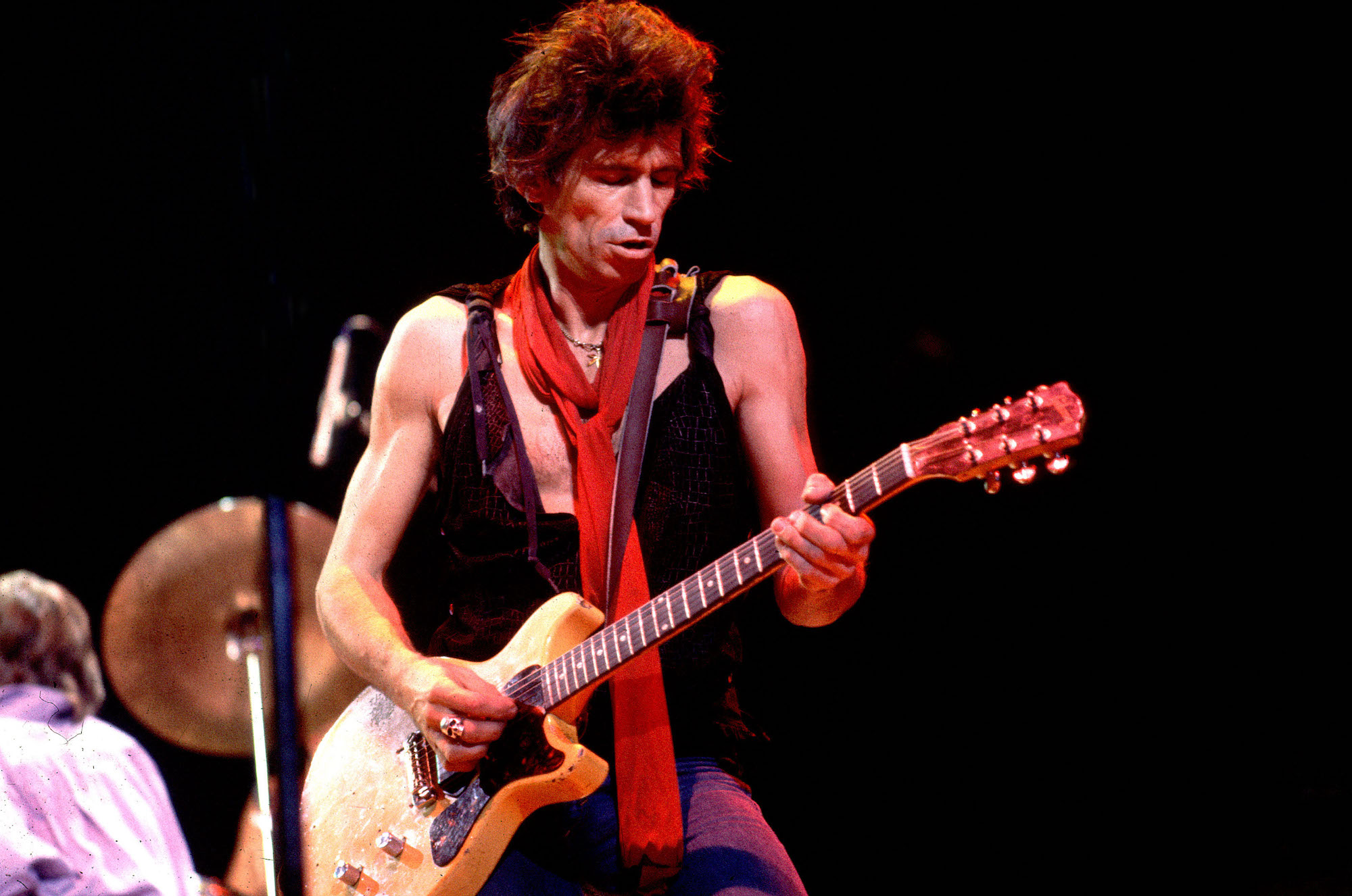
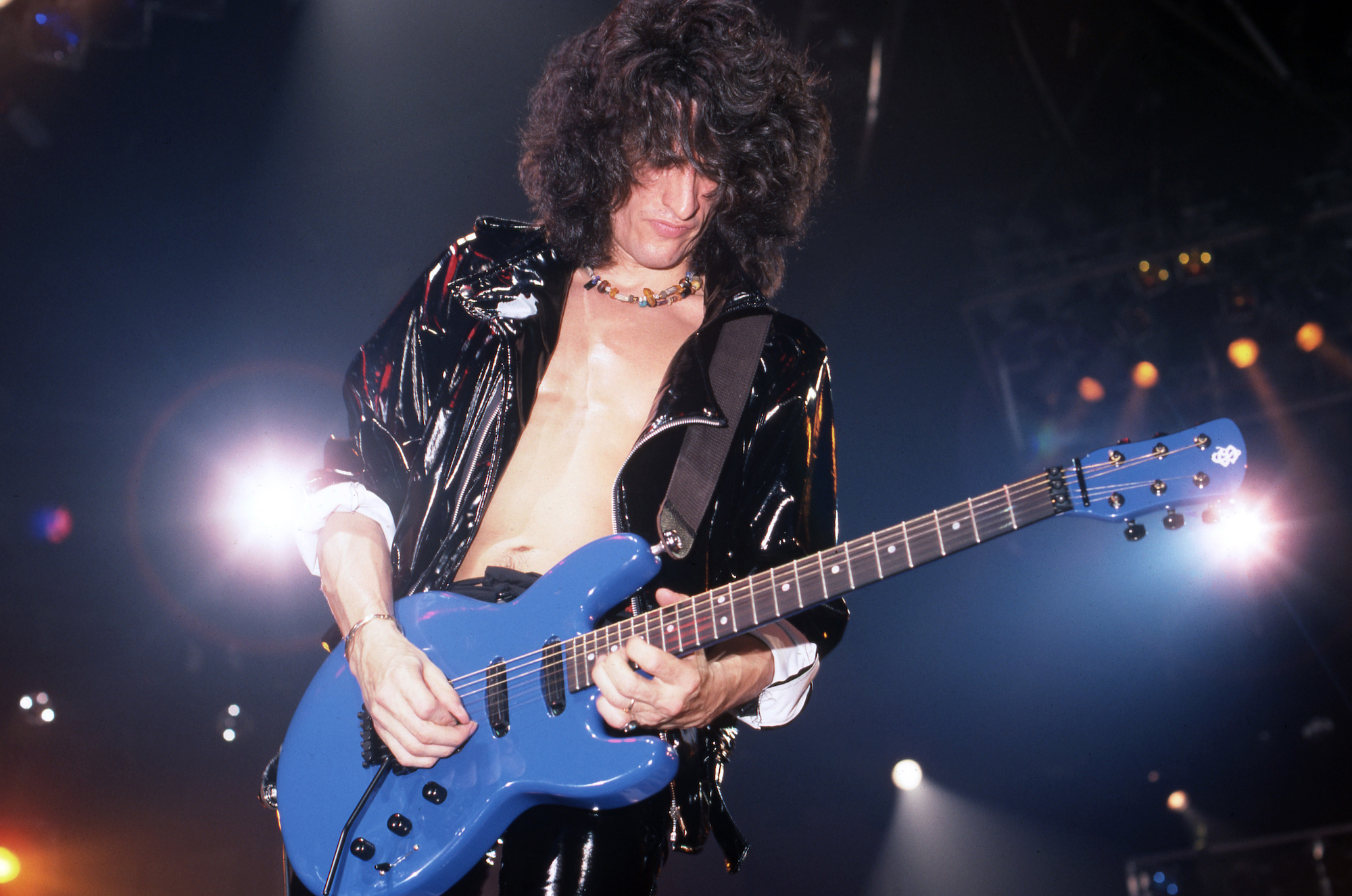
"I have to go with another tie between Richards and Perry. With these two, it's all about swagger. It's all about the cool factor. Those two guys didn't write stupid shit, ever, and they were always so effortlessly cool. In many ways, that was more important than the sound or showing off their abilities as guitar players or whatever. It was all about feeling dirty, and I appreciate that.
"As much as I appreciate the finesse and heart of someone like Gilmour or the beauty of Schenker, the dirt of those Richards and Perry [riffs] spoke to my soul. It's too hard to choose between them because they both approach guitar in their own ways.
"Keith comes from Chuck Berry, and Joe Perry comes from the Yardbirds, so how do I choose? How do I judge that? Keith sold more, but I won't let that be the deciding factor. And there's one other guy like these two, who also had that same cool factor – Johnny Thunders – but I'll leave it there."
12. Dimebag Darrell
"The last one for me has to be Dimebag Darrell, the most incredible metal player of all time.
"I would venture to say that he was able to take in things that were already there and make them his own with his Randall amp, L 500 XL pickup, pointy Dean guitar, and his smile. He'd kick your ass while smiling at you with a guitar. It's like, Jesus Christ, man. He was one hell of a player, and his whole vibe definitely influenced me."
- L.A. Guns' Black Diamonds is set for April 14 release via Frontiers Music Srl.
Andrew Daly is an iced-coffee-addicted, oddball Telecaster-playing, alfredo pasta-loving journalist from Long Island, NY, who, in addition to being a contributing writer for Guitar World, scribes for Bass Player, Guitar Player, Guitarist, and MusicRadar. Andrew has interviewed favorites like Ace Frehley, Johnny Marr, Vito Bratta, Bruce Kulick, Joe Perry, Brad Whitford, Tom Morello, Rich Robinson, and Paul Stanley, while his all-time favorite (rhythm player), Keith Richards, continues to elude him.

